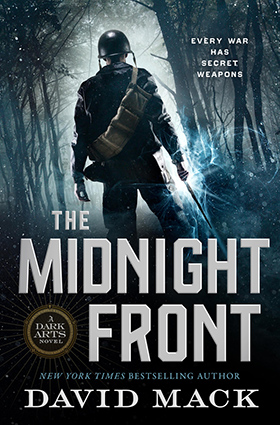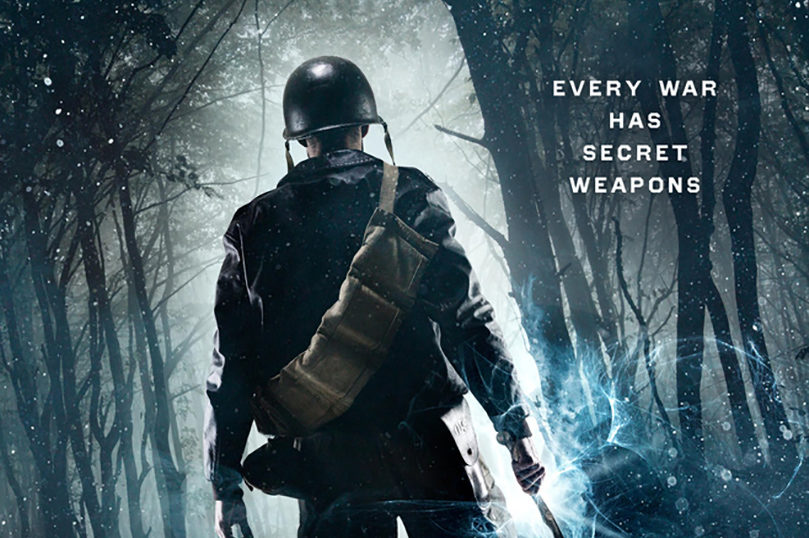opens in a new window Written by opens in a new windowDavid Mack
Written by opens in a new windowDavid Mack
Titling a novel can be hard as hell. Finding a good title that actually fits one’s story is sometimes one of the most difficult steps in a novel’s creation. But conceiving the right title for an entire series might be the most frustrating creative hurdle of all.
A good rule of thumb for a title is that the larger the body of work it needs to comprise, the shorter the title should be. For instance, a work of short narrative prose or an episode of a television series can have a wordy title (e.g., “For the World Is Hollow and I Have Touched the Sky”), while such verbiage would be unwelcome on the cover of a novel, and certainly would not work as the name of a series. Another reason to keep the series’ umbrella title short is to conserve space on book covers for the title of the individual work and the author’s byline. So let’s establish that rule one of series titles is: Concision is your friend.
When I was but an undergraduate studying screenwriting at NYU’s school of film and television, I was taught that while clichés are frowned upon in most forms of writing, learning to subvert or recontextualize clichés with puns or changes in word order can be an effective technique for developing catchy titles. Phrases that have a long history of usage in the common vernacular are especially ripe for this treatment, and depending upon the subject matter of one’s work, a title that comes pre-loaded with double entendres can be a marketing boon.
Among the many reasons I titled my first Star Trek trilogy Destiny was that it was short, which meant it would be printed large beneath the Star Trek logo. For the same reason I kept the titles of the trilogy’s three constituent volumes short, as well: Gods of Night, Mere Mortals, and Lost Souls. Minimizing verbiage on the covers left more room for art, and using titles drawn from the common parlance made them easier for the sales team to promote and market.
I applied these same principles a few years ago when I prepared Dark Arts, my newest series of original novels, to go out into the market in search of a publisher.
Before I had the title, I had my series concept: a contemporary epic fantasy, coupled with secret history, that follows a small group of sorcerers through key moments of geopolitical history. I wanted to see how these characters would navigate the modern era through periods of war, international espionage, economic upheaval, societal collapse, and more. They would be more than mages in a world that was quickly outgrowing them: they would be soldiers, spies, assassins, and political advisers.
As I developed the first novel, I considered dozens of possible titles. None felt right to me until, inspired by Erich Maria Remarque’s wartime classic All Quiet on the Western Front, I wrote “The Midnight Front” in dramatic-looking script. As soon as I saw it, I knew that I had my title.
Because I wanted to set my second book in the Cold War 1950s, and the third novel in 1963 immediately after the assassination of President John F. Kennedy, I applied the same technique to those works’ titles: I found a phrase or an entity that embodied the period and put a black-magic spin on it. The phrase I chose to represent the 1950s Cold War was “The Iron Curtain,” from which I derived The Iron Codex. The assassination of JFK led to the formation of the infamous Warren Commission, from which I concocted The Shadow Commission.
I still needed an overall title for my new series. One that could also work for short prose tales I might add to it, and that would apply just as well to book one as it would to book three and beyond. During the writing of the first novel, I noticed a reference in my manuscript to black magic as a “dark art.” That was when I recalled hearing that same expression be applied to politics, as well as to covert special warfare, hostile-takeover economics, public relations, media manipulation, and many other professions of dubious ethics and morality—all topics that I plan or hope to delve into with this series as it progresses.
And thus begins my upcoming foray into the world of Dark Arts, starting with book one, The Midnight Front, at the end of January. I hope you’ll be coming along for the ride.
Order Your Copy
opens in a new window opens in a new window
opens in a new window opens in a new window
opens in a new window opens in a new window
opens in a new window opens in a new window
opens in a new window
Follow David Mack on opens in a new windowTwitter, opens in a new windowFacebook and on opens in a new windowhis website.







